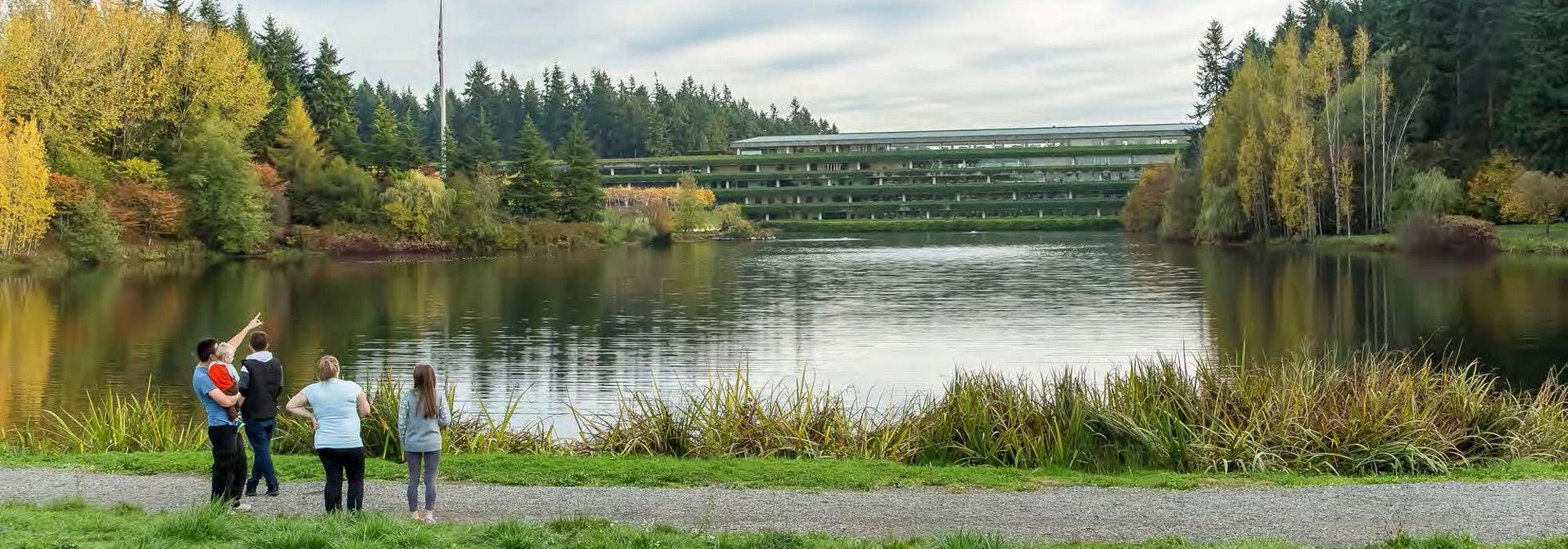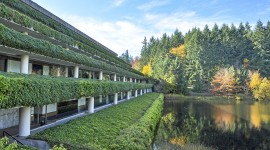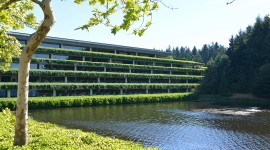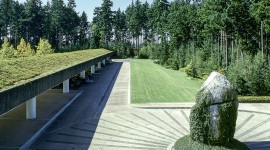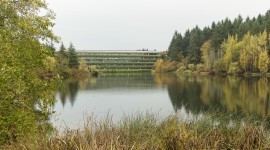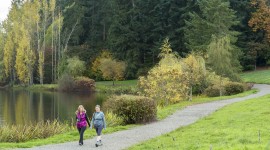Adverse Effects Being Studied on Historic Weyerhaeuser Campus
There are new developments in the ongoing saga at the Weyerhaeuser campus in the City of Federal Way in Washington State. Four years ago on October 19, 2016 The Cultural Landscape Foundation (TCLF), enrolled the campus in Landslide following the announcement that the site, which had been sold to the Industrial Realty Group (IRG) in February 2016 for $70.5 million, would be subdivided and developed. In the intervening years, IRG announced plans to build several large warehouses on the site; efforts to prevent the construction were repeatedly hobbled. Now, however, the U.S. Army Corps of Engineers (USACE) is expected to soon begin a review of potential negative impacts caused by the proposed warehouse development, pursuant to Section 106 of the National Historic Preservation Act.
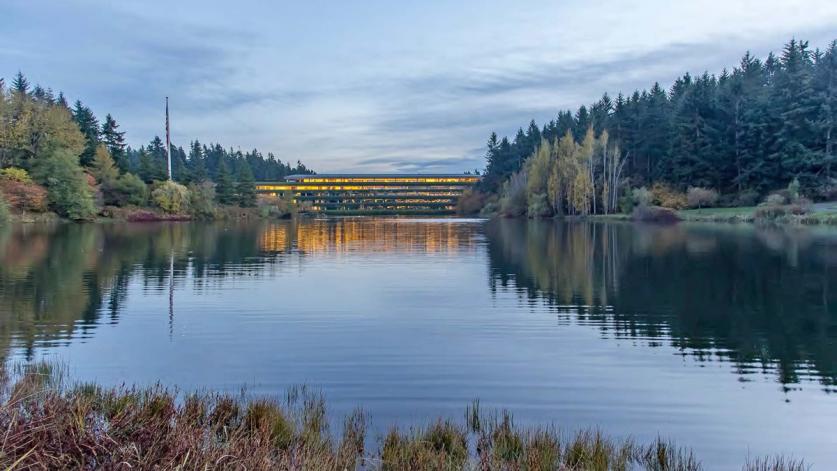
“We have sufficient information to determine there is an eligible district and it will be adversely affected,” Lance Lundquist, Cultural Resources Program Manager for the Seattle District of the USACE, wrote in a letter of October 6, 2020, concerning the upcoming Section 106 review. The purpose of the Section 106 process is to determine if an undertaking will cause negative impacts (“adverse effects” in Federal parlance) on historic resources, and how those adverse effects could be avoided, minimized and/or mitigated.
In a July 2020 report, Cardno, the consultant for property owner Industrial Realty Group (IRG), stated no adverse effects would occur to the campus’ historic resources due to construction of two warehouses, totaling 440,000 square feet, just southeast of the iconic headquarters building. It stated that swaths of forest on the exterior of the circulation drive are not contributing features to the historic landscape design.
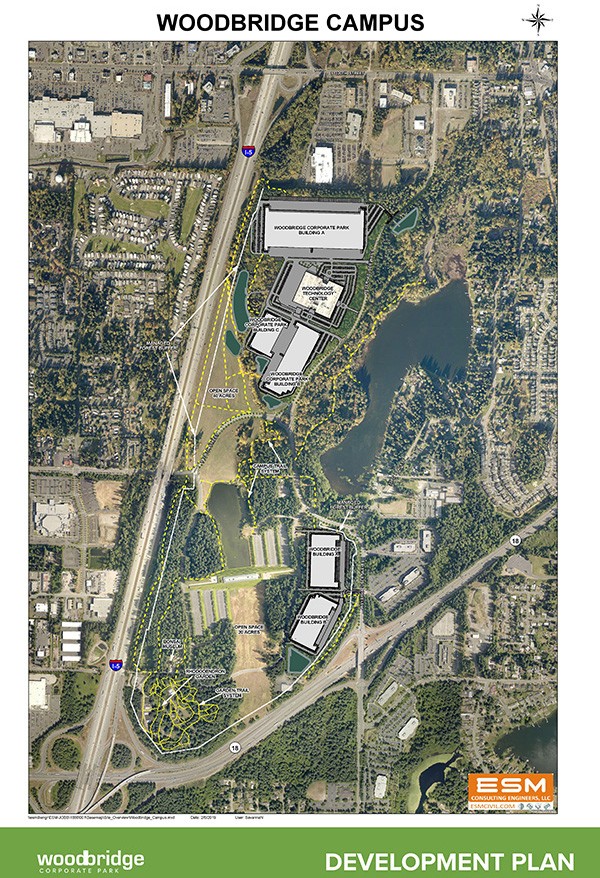
The report also concluded that 50-foot forested buffers along the perimeter of the two-warehouse site would be enough to protect views from the Modernist headquarters building, and the development “will not diminish the integrity of the recommended [National Register of Historic Places]-eligible Weyerhaeuser Corporate Headquarters Historic District's significant historic features."
But after comments made by consulting parties during an initial call with the USACE, Cardno will update its report “to reflect an adverse effect recommendation/rationale,” wrote the USACE’s Lundquist.
IRG, operating as Federal Way Campus LLC, has renamed the campus Woodbridge Corporate Park. IRG has stated it plans to leave the exterior of the iconic headquarters building untouched, but is subdividing the large parcel for redevelopment. Current plans call for five warehouses on about 110 acres of the site, including significant swaths of the character-defining forests and nature trails that have been used by the public for nearly five decades.
IRG has already received land-use approval for the first warehouse — 225,950 square feet and 45 feet tall — from the city of Federal Way. That approval was appealed at the city level and then in King County Superior Court by grassroots advocacy group Save Weyerhaeuser Campus (SWC). The judge upheld the conditions that had been imposed by the city hearing examiner, dismissing separate challenges by SWC and IRG.
On October 9, the city of Federal Way issued an environmental Mitigated Determination of Non-Significance for the second warehouse — 214,050 square feet and also 45 feet tall. Comments on the determination must be submitted by October 23; appeals must be filed by November 13. A land-use decision is still pending.
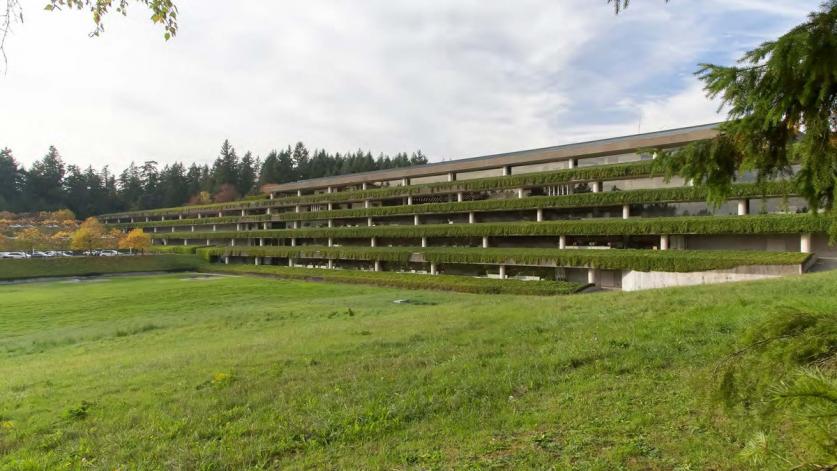
A traffic study shows that the two warehouses are expected to draw nearly 400 heavy truck trips daily, in addition to more than 1,500 passenger car trips.
Three warehouses proposed on the north end of the campus, around the former Weyerhaeuser Technology Center, would total nearly 1.1 million square feet. The land-use permit for that project is still under review by the city. That project is also under permit review by the USACE; it likely will be subject to a separate Section 106 process.
After purchasing the campus in 2016, IRG proposed a 314,000-square-foot fish-processing plant and freezer warehouse. The city reviewed more than 300 comments submitted during the public comment period and IRG withdrew the application in December 2016.
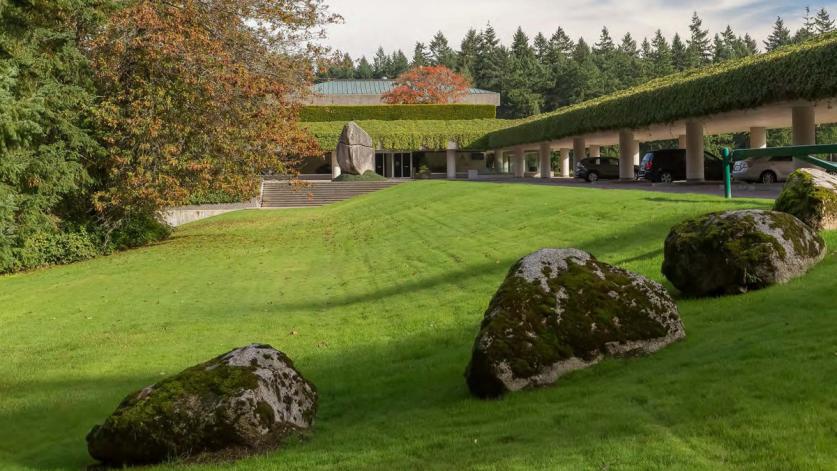
In May 2017, the Washington Trust for Historic Preservation named the historic Weyerhaeuser campus as one of its “Most Endangered Properties," an annual campaign to bring attention to threatened buildings, sites, and historic places in Washington state.
In November 2017, Washington’s State Architectural Historian issued a Determination of Eligibility for listing the site in the National Register of Historic Places, writing, in part:
“While not yet 50 years old the Weyerhaeuser Headquarters would easily qualify for listing on the National Register of Historic Places (under criteria A & C) as a ground- breaking design that has been studied by generations of architects, architectural historians, landscape architects and historians… specific details as to the boundaries of a listing would need to be defined after further study but most likely includes the full 260 acres as initially developed by Sasaki, Walker & Associates.”
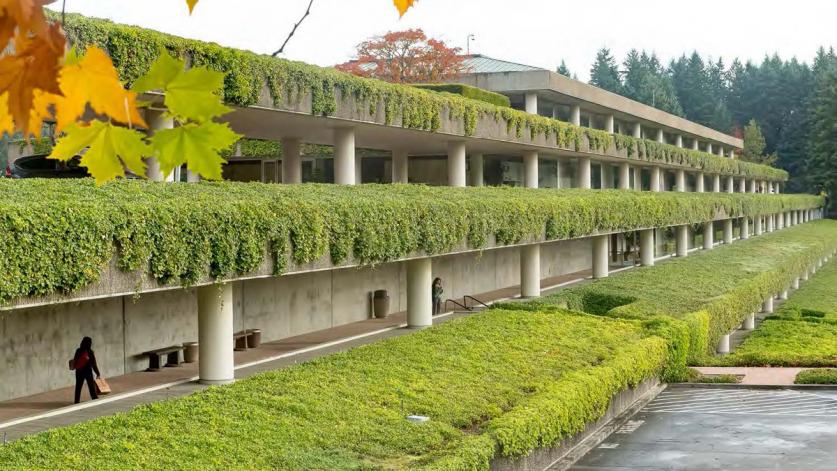
The warehouse projects would significantly impact the character of the historic campus, which the Federal Way City Council wanted to preserve when the property was annexed by Federal Way in 1994. However, the open-ended zoning agreement the city and Weyerhaeuser Company signed 26 years ago allows new development to be governed by most codes from that era, which would permit up to 70 percent of the campus to be covered with impervious surfaces and gives a city department director the power to determine what unlisted uses are allowed.
The Save Weyerhaeuser Campus organization favors a comprehensive approach to new development on the campus so that all impacts can be determined and mitigated cumulatively. It also is involved in efforts to purchase 54 acres of the campus lying along the west shore of North Lake to preserve it for public use.
What you can do
Participate in the Section 106 process by contacting Lance Lundquist, Cultural Resources Program Manager, at 206-764-6909 or Lance.A.Lundquist@usace.army.mil
Donate funds to SWC, a nonprofit with no paid staff, to cover costs of its legal team, technical experts and community outreach.



